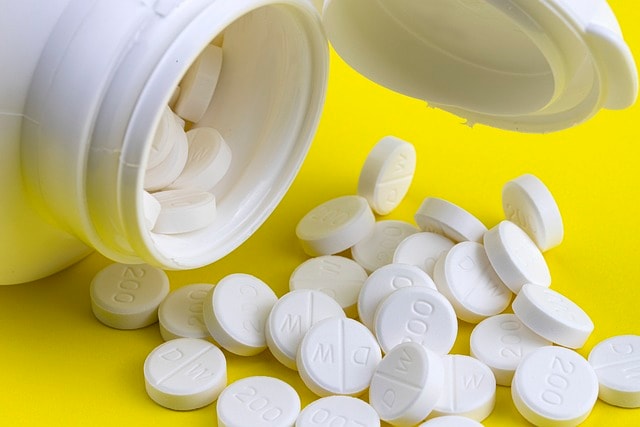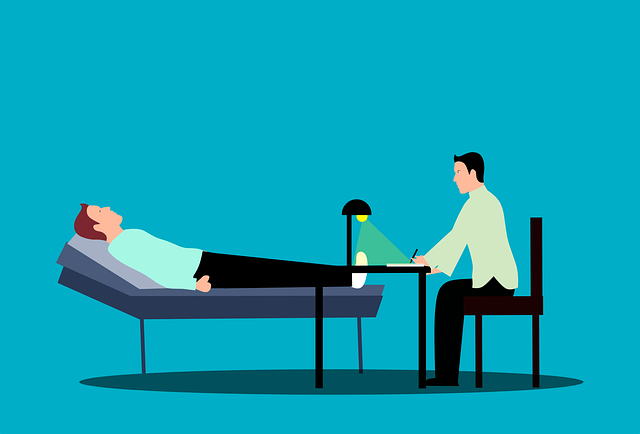The Risks of Combining Vyvanse and Alcohol: What You Should Know
Understanding Vyvanse and Attention Deficit Hyperactivity Disorder
Vyvanse (lisdexamfetamine) is a prescription drug and stimulant medication commonly used to treat ADHD (attention deficit hyperactivity disorder) and binge eating disorder. By altering the balance of chemicals like norepinephrine and dopamine in the brain, it helps improve focus, reduce impulsivity, and manage ADHD symptoms. However, Vyvanse is a controlled substance classified under Schedule II by the Drug Enforcement Administration due to its high potential for drug abuse and physical dependence.
Many individuals rely on Vyvanse to manage ADHD effectively, but it’s essential to use the medication strictly as prescribed by a doctor. Misuse or combining Vyvanse with other substances, such as alcohol, can lead to severe health complications.
How Does Alcohol React with Vyvanse?
Alcohol is a depressant that affects the central nervous system, while Vyvanse is a stimulant. When combining alcohol and Vyvanse, their opposing effects can strain the body, leading to serious risks. For instance, the stimulant effects of Vyvanse may mask the impact of alcohol, causing individuals to mix Vyvanse with alcohol, which increases the chance of alcohol poisoning.
When mixing alcohol and Vyvanse, the combination can mask feelings of intoxication, leading to increased consumption and a heightened risk of addiction and overdose. On the other hand, alcohol can interfere with Vyvanse’s effectiveness, potentially worsening ADHD symptoms. This dangerous interaction raises concerns about polysubstance abuse, where individuals misuse more than one substance simultaneously, significantly increasing the likelihood of addiction and other health problems.
The Dangers of Mixing Vyvanse and Alcohol
Increased Risks to Physical Health
Mixing Vyvanse and alcohol can lead to several harmful effects:
Heart problems: Both substances can elevate heart rate and blood pressure, putting users at risk for chest pains, arrhythmias, or even a heart attack.
Overdose: The “canceling effect” of mixing Vyvanse with alcohol often leads individuals to take higher doses of both substances, increasing the chance of a fatal overdose.
Alcohol poisoning: As Vyvanse reduces the sedative effects of alcohol, individuals may unknowingly drink to dangerous levels.
Mental Health Risks
The combination can exacerbate anxiety and lead to risky behaviors. In some cases, individuals may experience extreme mood swings or develop a higher risk of depression.
Recognizing Substance Abuse and Addiction
Both Vyvanse and alcohol are classified as addictive substances. Misusing them—whether by exceeding prescribed doses of Vyvanse, drinking excessively, or combining the two—can result in substance abuse or addiction. For instance:
Vyvanse abuse: Taking Vyvanse without a prescription, using it recreationally, or consuming higher doses than prescribed.
Alcohol dependence: Regularly exceeding the recommended alcohol limits (more than 4 drinks a day for men or 3 for women).
Addiction treatment is crucial for overcoming substance abuse issues, emphasizing the importance of professional help for various addictions.
This pattern of misuse can develop into polysubstance abuse, where the interaction of both alcohol and Vyvanse heightens the risk of severe health consequences.
Getting Help
If you or a loved one is struggling with Vyvanse and alcohol abuse, it’s essential to seek professional help. Treatment for addiction to both substances can be challenging, but with the right support and guidance, recovery is possible.
Treatment Options
Medical Detoxification: A medically supervised detox program can help individuals safely withdraw from Vyvanse and alcohol. This process ensures that withdrawal symptoms are managed effectively, reducing the risk of complications.
Behavioral Therapy: Cognitive-behavioral therapy (CBT) and other forms of talk therapy can help individuals understand the underlying causes of their addiction and develop coping strategies. These therapies are crucial for addressing the psychological aspects of addiction.
Medication-Assisted Treatment: Medications like buprenorphine and naltrexone can help manage withdrawal symptoms and cravings, making it easier for individuals to stay on the path to recovery.
Support Groups: Joining a support group, such as Narcotics Anonymous or Alcoholics Anonymous, can provide a sense of community and accountability. These groups offer a supportive environment where individuals can share their experiences and learn from others.
Finding the Right Treatment Center
When searching for a treatment center, consider the following factors:
Experience with Polysubstance Abuse: Look for centers with experience treating individuals with addiction to multiple substances, including Vyvanse and alcohol. This expertise is crucial for addressing the unique challenges of polysubstance abuse.
Comprehensive Treatment Approach: Ensure the center offers a comprehensive treatment approach that addresses physical, emotional, and psychological aspects of addiction. A holistic approach increases the chances of successful recovery.
Licensed and Accredited: Verify the center is licensed and accredited by reputable organizations, such as the Joint Commission or the Commission on Accreditation of Rehabilitation Facilities (CARF). Accreditation ensures that the center meets high standards of care.
Individualized Treatment Plans: Opt for a center that creates personalized treatment plans tailored to each individual’s needs. Customized plans are more effective in addressing specific issues and promoting long-term recovery.
Treatment Options for Vyvanse and Alcohol Addiction
Recovering from addiction to Vyvanse and alcohol requires a comprehensive approach that includes:
Detox Process: A medically supervised detoxification phase to safely remove substances from the body.
Rehabilitation Programs: Treatment programs tailored to address substance-specific dependencies, such as those for Vyvanse or alcohol.
Therapy: Behavioral therapies and counseling to identify and address the root causes of addiction.
Facilities like Zinnia Health specialize in helping individuals recover from polysubstance abuse, offering support through tailored treatment programs and therapies. If you or a family member is struggling, seeking professional help is essential for a full recovery.
Alternatives to Mixing Vyvanse and Alcohol
If you are taking Vyvanse, avoid alcohol consumption entirely to minimize risks. Here are some guidelines:
Wait at least 24 hours after your last dose of Vyvanse before you drink alcohol, as the medication’s effects can last between 10 to 14 hours.
Speak with your doctor about potential interactions between Vyvanse and other medications you may be taking.
Understand that the effects of Vyvanse and alcohol differ based on metabolism and dosage, so erring on the side of caution is crucial.
Prevention and Education
Preventing Vyvanse and alcohol abuse requires education and awareness. Here are some strategies to help prevent misuse:
Understand the Risks: Educate yourself and others about the dangers of mixing Vyvanse and alcohol, including the risk of alcohol poisoning, increased heart rate and blood pressure, and addiction. Awareness is the first step in prevention.
Follow Prescription Guidelines: If prescribed Vyvanse, follow the recommended dosage and usage guidelines to minimize the risk of abuse. Always take prescription medications as directed by your healthcare provider.
Monitor Use: Keep track of your Vyvanse and alcohol use to identify potential patterns of misuse. Monitoring can help you recognize early signs of abuse and take action before it escalates.
Seek Help Early: If you or someone you know is struggling with Vyvanse and alcohol abuse, seek help early to prevent long-term consequences. Early intervention can significantly improve the chances of successful recovery.
Resources
National Institute on Drug Abuse (NIDA): A trusted source for information on substance abuse and addiction. NIDA provides valuable resources for understanding and addressing drug abuse.
Substance Abuse and Mental Health Services Administration (SAMHSA): A government organization providing resources and support for individuals struggling with addiction. SAMHSA offers a range of services, including treatment locators and helplines.
Treat Mental Health Tennessee: A treatment center specializing in polysubstance addiction, including Vyvanse and alcohol. The Recovery Village offers comprehensive treatment programs tailored to individual needs.
By understanding the risks and consequences of mixing Vyvanse and alcohol, individuals can take steps to prevent misuse and seek help when needed. Education and early intervention are key to preventing alcohol abuse and ensuring a healthier future.
Conclusion
Mixing Vyvanse and alcohol poses serious risks, from cardiovascular complications to overdose and even death. It’s critical to understand the dangers of combining these substances and to avoid behaviors that increase the likelihood of addiction or physical harm.
If you or someone you love is battling substance abuse, there is hope. Facilities like Treat Mental Health Tennessee provide expert care to help individuals recover and regain control of their lives. By educating yourself and seeking professional support, you can take the first step toward a healthier, addiction-free future.
FAQ's
It’s strongly advised to avoid drinking alcohol while taking Vyvanse. Vyvanse is a stimulant medication used to treat ADHD and binge eating disorder, while alcohol is a depressant. Combining the two can lead to dangerous interactions, including increased heart rate, high blood pressure, and a heightened risk of alcohol poisoning or overdose. If you’re prescribed Vyvanse, consult your doctor about safe practices regarding alcohol consumption.
Mixing Vyvanse and alcohol can have severe effects on your body and mind. Vyvanse may mask the sedative effects of alcohol, leading you to drink more than intended, which increases the risk of alcohol poisoning. The combination can also cause cardiovascular problems, such as elevated blood pressure and heart rate, and may lead to risky behaviors or substance dependence. Over time, this combination can result in polysubstance abuse, which is more difficult to treat.
Vyvanse and alcohol are dangerous when combined because of their opposing effects on the central nervous system. While Vyvanse acts as a stimulant, alcohol is a depressant. This conflict can overburden your body, leading to severe side effects like anxiety, chest pains, or even a heart attack. Additionally, mixing these substances increases the likelihood of addiction, overdose, and life-threatening health complications.
If you’ve been combining Vyvanse and alcohol, it’s important to seek medical advice immediately. Speak to your doctor or reach out to an addiction specialist to assess your situation. Treatment options often include a detox process, therapy, and tailored recovery programs to address substance abuse. Facilities like treatmhtennessee.com specialize in treating both Vyvanse and alcohol addiction and can help you regain control of your health and well-being.












